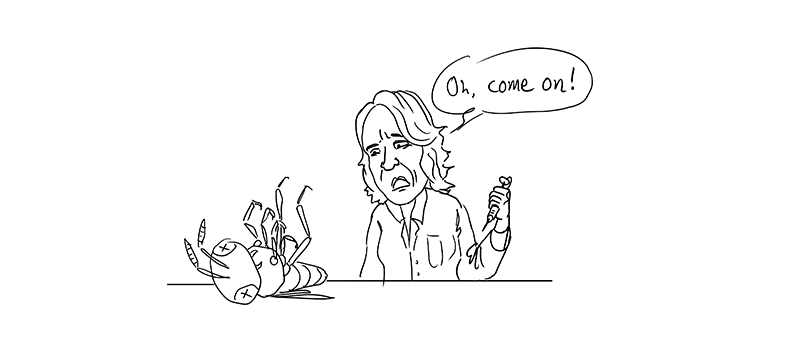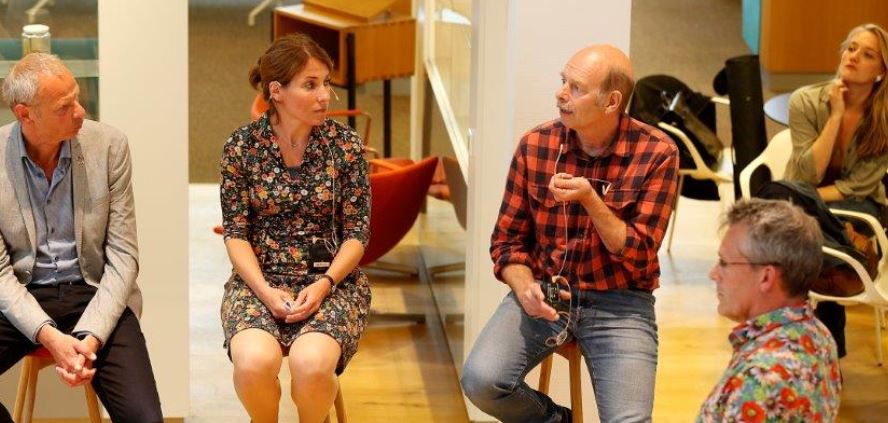A failed experiment, an error in your model, a rejected article: in academia such things tend to be labelled failures. As for talking about failure? Not done! But that’s just what WUR co-workers do in this regular feature, ‘You win some, you lose some’. Because failure can be useful. In this instalment, we hear from Eveline Verhulst, assistant professor of Entomology.
‘I’ve been trying and failing to modify the DNA of a parasitic wasp, Nasonia, ever since 2008. I want to understand the sex determination in those wasps. A whole bunch of genes together determine whether a wasp turns out male or female. I’m very interested in how that came about and why it varies so much.
To understand it, you need to be able to switch off genes. To do that, you have to inject embryos (eggs) at an early stage with Cas9 RNA from the CRISPR-Cas system. And that turns out to be very difficult in this wasp. During my PhD research in Groningen, a colleague and I flew to New York, where a lab had succeeded in modifying genes by injecting eggs with a special piece of DNA. Back in Groningen, I repeated the procedure, but only a few eggs survived.
One day I hope I can say: yes, it was 10 years of setbacks, but now we’re there
It was even less successful later with the Cas9 RNA: out of thousands of injections, three eggs had survived and in none of them had the gene been switched off. That was no good to me. I completed my PhD without having used a single injected egg in my experiments.
This is a failure that’s been going on for 10 years. The research keeps getting stuck for technical reasons very annoying. If injecting those eggs had gone smoothly, all these other technical hitches could have been avoided. With fruit flies and cabbage white butterflies, it is straightforward, but in this case it isn’t. Most frustrating.
Sometimes I wonder why I’m not working with fruit flies. But then again, if everyone does research on an organism with which you know everything will go to plan, we won’t learn anything. Sometimes you have to deal with masses of technical setbacks before you can gain new insights. It’s just got to work in this organism. It’s a case of going for the long haul. One day I hope I can say: yes, it was 10 years of setbacks, but now we are there.’

 Text and Illustration Stijn Schreven
Text and Illustration Stijn Schreven 

